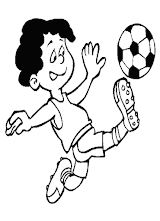This evening marks the onset of Yom Kippur -- the Day of Atonement the most solemn date in the Jewish calendar. It is a day of fasting; a day of prayer, of serious contemplation of what sort of people we are, and of teshuvah -- admitting that we have done wrong, repenting for those things we should not have done, and resolving to put them right.
Pirkei Avot has some well-known mishnayot on the subject of teshuvah, but it is not widely appreciated that this tractate contains plenty of teachings that are relevant to repentance even though they make no mention of it.
For example, in one such mishnah (Avot 1:17) Rabban Shimon ben Gamliel (a great-great grandson of Hillel, killed either by the Romans or by Jewish zealots) teaches three things:
(i) All my days I grew among the wise men, but I found nothing that was good for the body except silence;
(ii) it’s not the learning [of Torah] which is the main thing but the doing [of its precepts];
(iii) everyone who increases words brings sin.
In this mishnah Rabban Shimon makes no mention of repentance at all, but that does not stop later commentators making his words apply to the teshuvah process.
One practical application of this mishnah (found in a compilation of commentaries, Mishel HaAvot) runs as follows. Rabbi Elya Lopian recalls that, in former times, some people considered it fitting to flagellate themselves as part of their process of atoning for the wrongs they had committed. However, even on the assumption that this process has any efficacy, today’s generations lack the constitutional robustness of their forebears when it comes to painful self-affliction. What alternative procedure in aid of atonement might then be available to them?
The answer lies in the power of silence, If we assume that all forms of wrongful action emanate from man’s spiritual inadequacies, the obvious option is to chastise one’s nefesh ("spirit" or "soul") while preserving the good health of one’s body. One way to do this is through the ta’anit dibbur—fasting, by abstaining not from food and drink but from speech: the ta’anit dibbur is thus an effective chastisement for man that causes him no physical harm or distress at all (taken from Lev Eliyahu, on parashat Vayikra).
An alternative view of this mishnah is that it endorses silence in preference to idle conversation but nonetheless both validates and demands speech that is necessary. According to Rabbi Avraham Yitzchak HaKohen Kook (Bi’urei HaRai’h: Pirkei Avot, based on a passage in the Zohar), we humans all think —and our thoughts are important to us, to others and to God. Sometimes, however, a thought by itself is not enough, however beautiful it may be.
Many of us will be familiar with a scenario in which a person receives a gift and thinks to himself “How lovely! What a truly kind gesture. This is exactly what I wanted and I’ve been looking forward to it for ages.” This is an excellent thought because it recognizes the recipient’s appreciation of the gift itself and the donor’s kindness in giving it. However, unless these thoughts are accompanied by words, they will not be known to the donor. Such thoughts may just have well been left unthought. The same applies with the process of teshuvah. A person can sincerely regret what he has done, feel genuine remorse and resolve never to repeat what he has done—but until these noble sentiments are reified in speech, they count for nothing.
Taking this view, the mishnah should be read as saying:: “I have never found anything good for the body [i.e. for myself] that has emerged from silence,” in other words, that repentance that is not supported by confirmatory speech is not regarded as efficacious.















